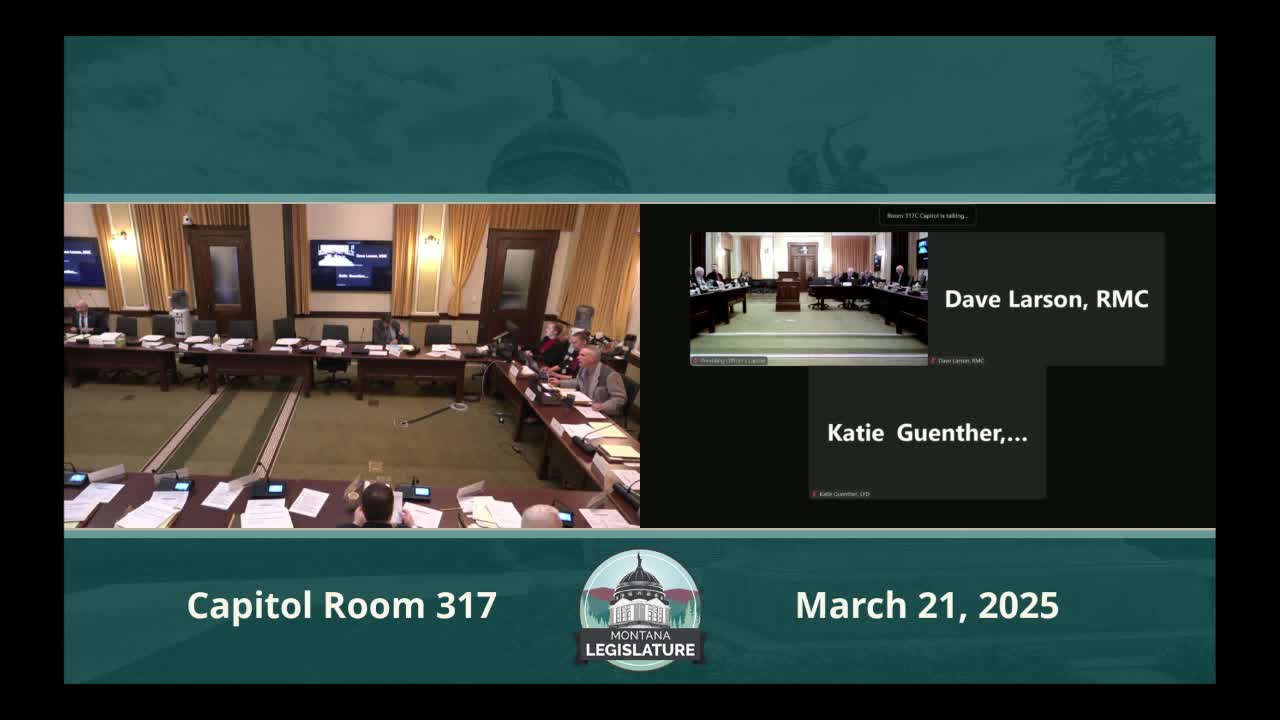Article not found
This article is no longer available. But don't worry—we've gathered other articles that discuss the same topic.
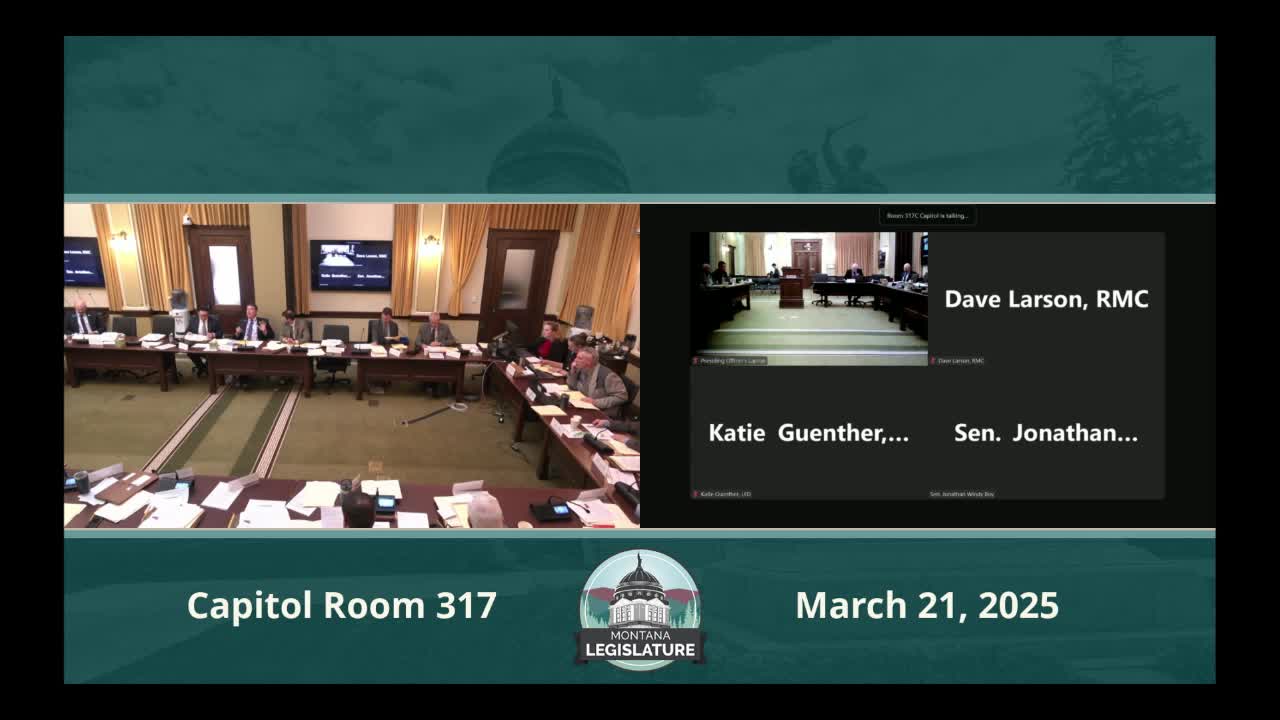
Proposal to create specialized claims court fails to gain committee majority
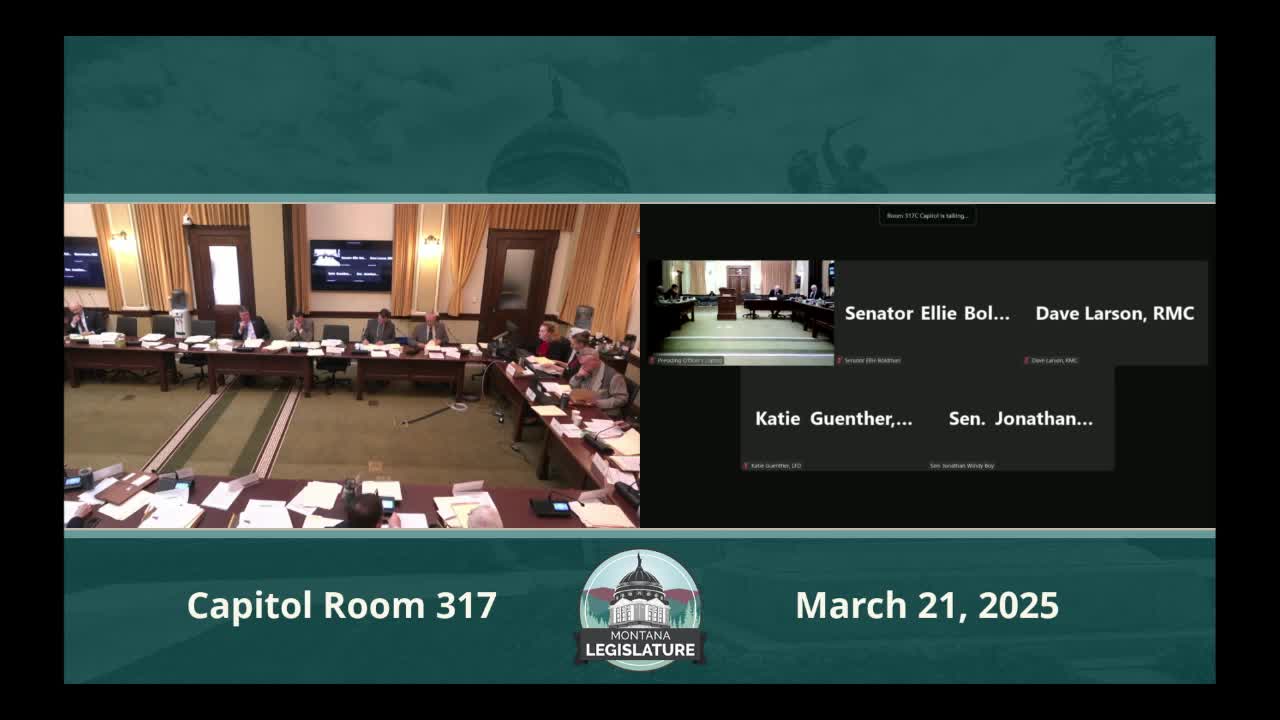
Committee advances doula bill after amendment clarifying beneficiary language; debate centered on Medicaid fit and budget priorities
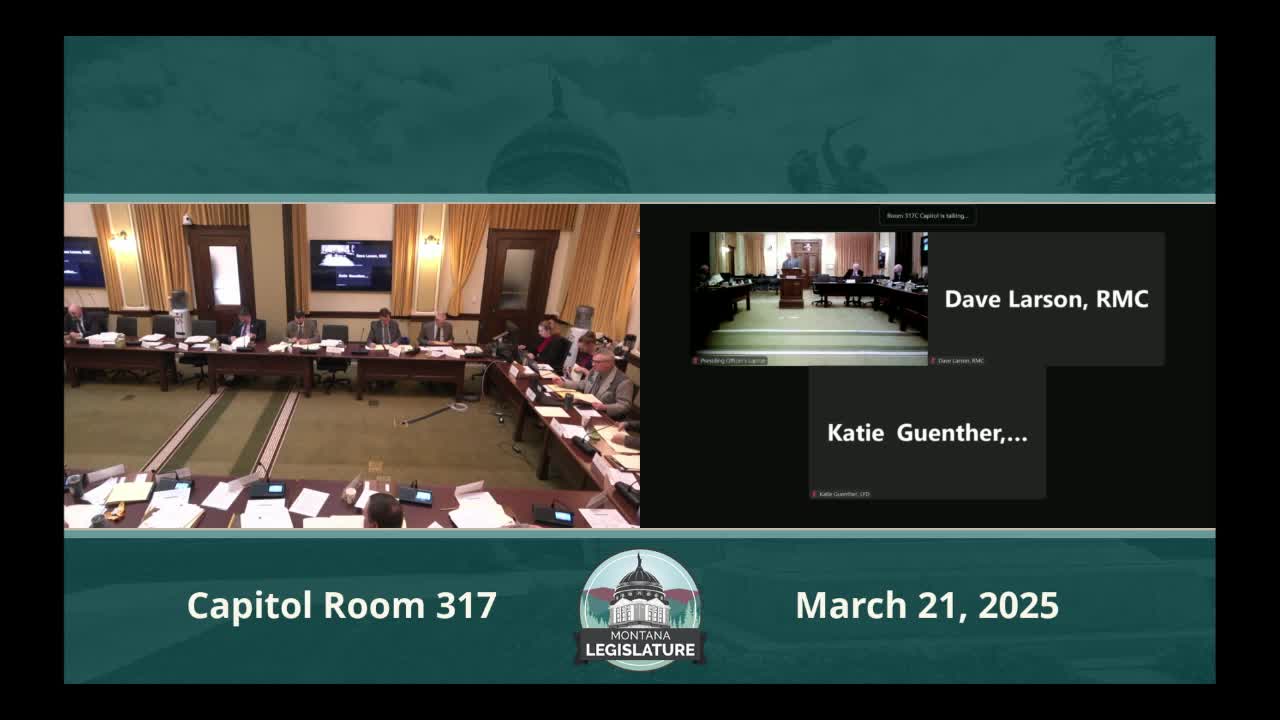
Committee deadlocks on performance audit of State Bar; bill tabled after roll‑call split
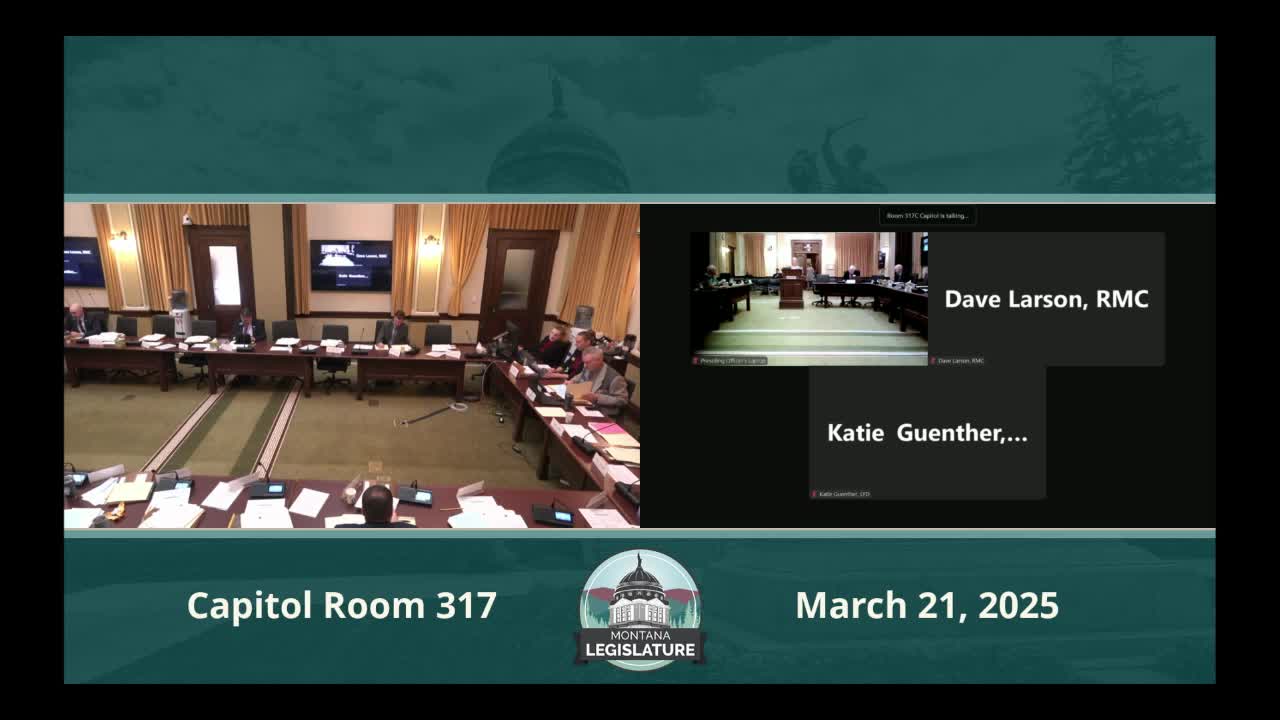
Bill would give DPHHS 10 extra days to process large hospital supplemental payments
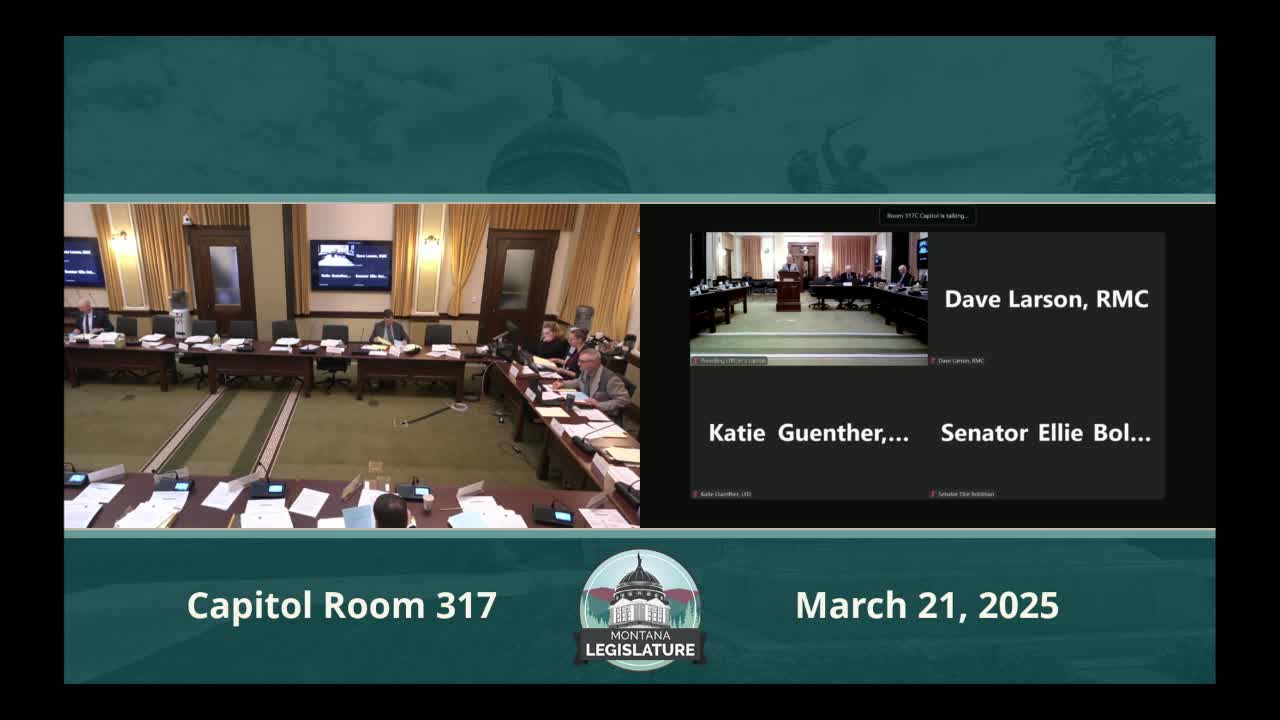
Counties, mining companies and commissioners urge extension of metal‑mines tax distribution to preserve county share
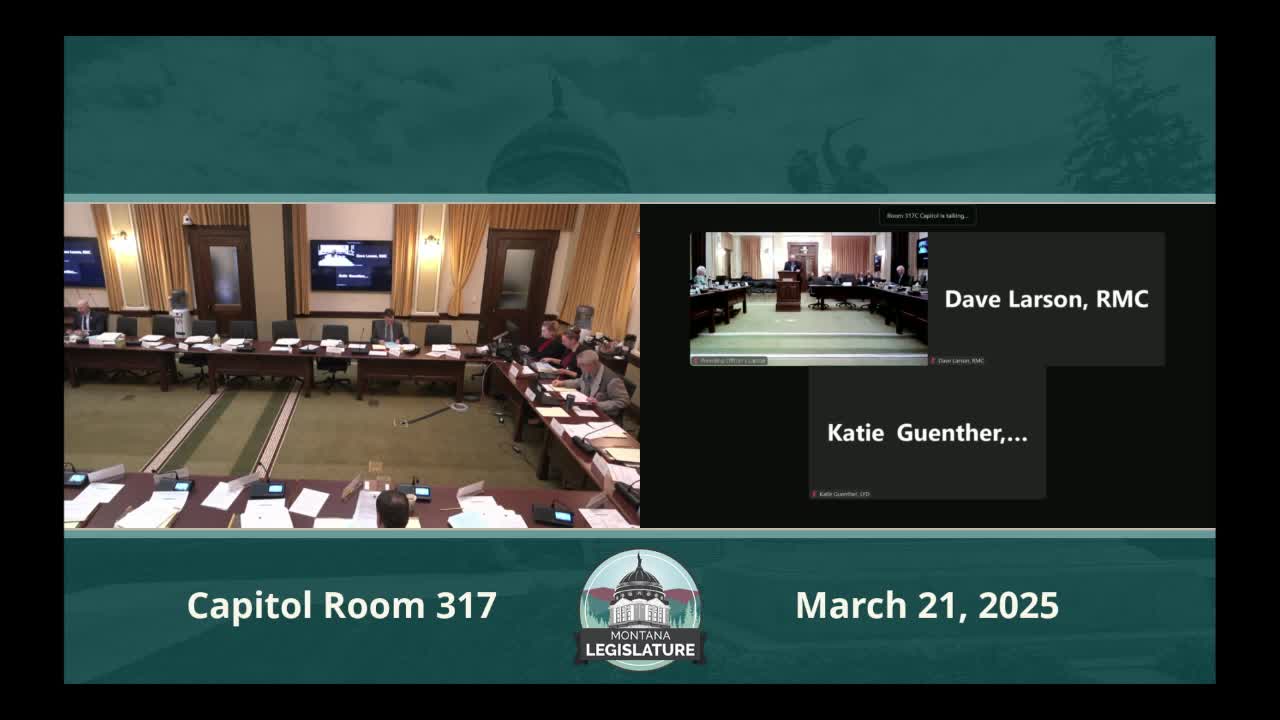
Auditor and state auditor’s office back statutory appropriation change for Montana Reinsurance Program
